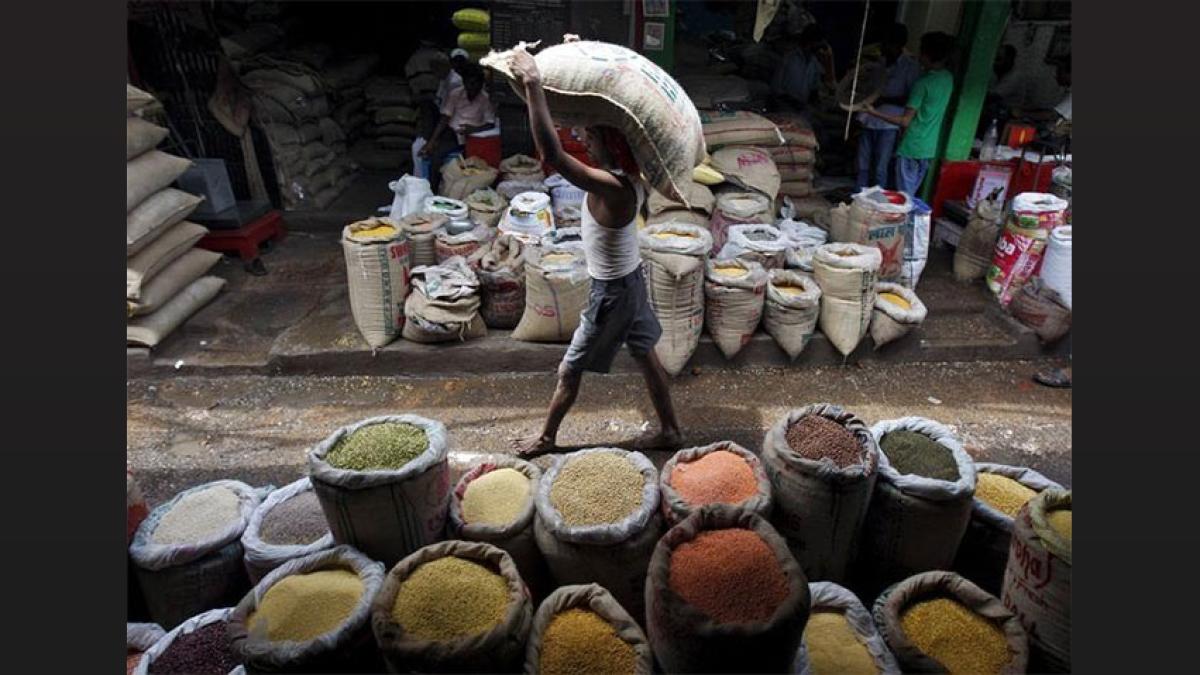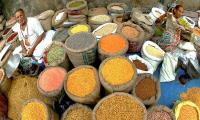India to Import 80-100 Lakh Tonnes of Pulses by 2030: Expert
Expert warns India may need to import 80-100 lakh tonnes of pulses by 2030 due to paddy subsidies, urging for crop-neutral incentives to boost pulse production.

New Delhi, Aug 9 (PTI) India will have to import 80-100 lakh tonnes of pulses by 2030 to meet domestic demand if the existing government policies of giving huge subsidies on paddy continue, said agri-economist Ashok Gulati.
There is a need to provide incentives to farmers to grow pulses, which require less water compared to paddy and are more nutritious also, he said.
Gulati, the former Chairman of the Commission for Agricultural Costs and Prices (CACP), emphasised on having "crop-neutral incentive structure" to encourage farmers to grow pulses and oilseeds for making India self-sufficient.
"If the existing policies continue then India will need to import 80-100 lakh tonnes of pulses by 2030," Gulati told reporters when asked about the government's goal to become self-sufficient in pulses.
The country imported 47.38 lakh tonnes of pulses in 2023-24 fiscal year.
"Self-sufficiency in pulses can be achieved if the policies are changed," Gulati asserted.
He was at a briefing organised by India Pulses & Grains Association (IPGA), on the sidelines of 'Bharat Dalhan Seminar 2024' in the national capital.
IPGA Chairman Bimal Kothari said the country's production of pulses is hovering at around 240-250 lakh tonnes in the last 3-4 years while the imports surged to 47 lakh tonnes last fiscal from 24.96 lakh tonnes in the preceding 2022-23 fiscal. He said the pulses demand is estimated to reach 400 lakh tonnes by 2030.
Gulati said the current policies of the Centre and State governments favour paddy cultivation as there is a huge subsidy on inputs like power and fertilisers.
"We have estimated that there is a Rs 39,000 per hectare subsidy in Punjab for paddy cultivation. This is being given by both Centre and States in the form of subsidies on power and fertilisers," he said.
Gulati said similar subsidies should be provided for pulses and oilseeds cultivations.
He pointed out that the state-owned Food Corporation of India (FCI) is holding 3.5 times more rice stocks than the buffer requirement. Despite a ban on many varieties of rice, the country exported 16 million tonnes of rice last fiscal.
Gulati also favoured allowing genetically modified (GM) technology in food crops. He said the technology helped India in achieving sharp growth in cotton production.
He also opposed the ban on exports of any food items and rather suggested that there should be an export duty.
Not only pulse, India imports edible oils in a large quantity to fulfil domestic requirements. More than 50 per cent of cooking oil demand is met through imports.
There is a need to provide incentives to farmers to grow pulses, which require less water compared to paddy and are more nutritious also, he said.
Gulati, the former Chairman of the Commission for Agricultural Costs and Prices (CACP), emphasised on having "crop-neutral incentive structure" to encourage farmers to grow pulses and oilseeds for making India self-sufficient.
"If the existing policies continue then India will need to import 80-100 lakh tonnes of pulses by 2030," Gulati told reporters when asked about the government's goal to become self-sufficient in pulses.
The country imported 47.38 lakh tonnes of pulses in 2023-24 fiscal year.
"Self-sufficiency in pulses can be achieved if the policies are changed," Gulati asserted.
He was at a briefing organised by India Pulses & Grains Association (IPGA), on the sidelines of 'Bharat Dalhan Seminar 2024' in the national capital.
IPGA Chairman Bimal Kothari said the country's production of pulses is hovering at around 240-250 lakh tonnes in the last 3-4 years while the imports surged to 47 lakh tonnes last fiscal from 24.96 lakh tonnes in the preceding 2022-23 fiscal. He said the pulses demand is estimated to reach 400 lakh tonnes by 2030.
Gulati said the current policies of the Centre and State governments favour paddy cultivation as there is a huge subsidy on inputs like power and fertilisers.
"We have estimated that there is a Rs 39,000 per hectare subsidy in Punjab for paddy cultivation. This is being given by both Centre and States in the form of subsidies on power and fertilisers," he said.
Gulati said similar subsidies should be provided for pulses and oilseeds cultivations.
He pointed out that the state-owned Food Corporation of India (FCI) is holding 3.5 times more rice stocks than the buffer requirement. Despite a ban on many varieties of rice, the country exported 16 million tonnes of rice last fiscal.
Gulati also favoured allowing genetically modified (GM) technology in food crops. He said the technology helped India in achieving sharp growth in cotton production.
He also opposed the ban on exports of any food items and rather suggested that there should be an export duty.
Not only pulse, India imports edible oils in a large quantity to fulfil domestic requirements. More than 50 per cent of cooking oil demand is met through imports.
You May Like To Read
TODAY'S MOST TRADED COMPANIES
- Company Name
- Price
- Volume
- Vodafone-Idea
- 11.36 ( -2.49)
- 94664837
- AvanceTechnologies
- 1.16 (+ 4.50)
- 34522155
- Sunshine-Capital
- 0.26 ( -3.70)
- 29015901
- Alstone-Textiles
- 0.27 ( -3.57)
- 28695959
- Mehai-Technology
- 1.65 ( -4.62)
- 28262795






